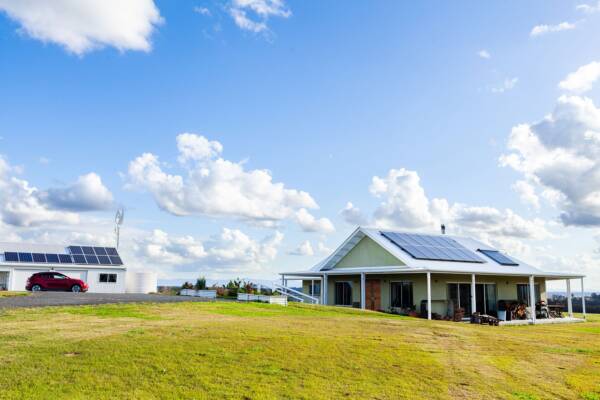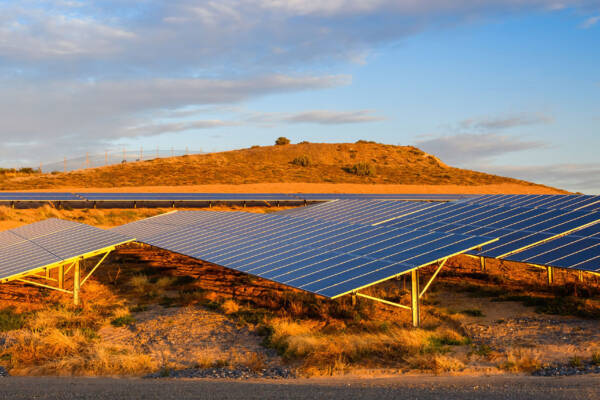Solar Power Again Most Favoured Energy Source In Australia
The Climate of the Nation 2022 report reveals solar power is (again) the most preferred energy source among Australians. And coal power was (again) towards the bottom of the pack.
Climate of the Nation is a survey gauging attitudes in the community on climate change and related issues. Commissioned by The Australia Institute (TAI), the initiative is now in its 15th year.
This year’s report suggests record numbers of Australians are very concerned about climate change. Australians are also becoming increasingly frustrated with energy companies and a have strong desire to transition away from gas and coal.
In terms of preferred energy sources, the following shows the percentage of respondents who ranked each energy source among their top three preferences in Climate of the Nation surveys going back to 2018.
| 2018 | 2019 | 2020 | 2021 | 2022 | |
| Solar energy | 76% | 76% | 79% | 79% | 76% |
| Wind | 39% | 58% | 62% | 63% | 60% |
| Hydro | 38% | 39% | 39% | 37% | 40% |
| Power Storage | 35% | 29% | 29% | 31% | 30% |
| Nuclear | 17% | 22% | 21% | 20% | 22% |
| Tidal/Wave | 19% | 21% | 22% | 20% | 21% |
| Gas | 22% | 20% | 19% | 19% | 21% |
| Coal | 18% | 18% | 14% | 15% | 17% |
| Geothermal | 17% | 17% | 16% | 16% | 14% |
While solar energy remained most preferred in 2022, it lost a bit of ground while coal and gas gained. 50% of all respondents chose solar as their number one choice – down from 52% in 2021.
Coal And Gas Not Only Climate Culprits
The report indicates 29% of respondents blamed renewable energy as a driver of increased electricity prices and 26% selected “unreliable” renewables requiring backup. But the reason electricity costs are increasing is more related to gas and coal. According to CSIRO’s GenCost 2021-22 report, renewables are the cheapest sources of electricity generation and storage in Australia – and that includes costs associated with energy storage and transmission.
Other perceptions of what’s driving electricity price increases:
- Privatisation of electricity generation and supply (48%)
- Excessive profit margins of electricity companies (46%)
- Excessive gas exports making domestic gas very expensive (42%)
- Previous Federal Government policy uncertainty, or poor policy development (40%)
- Climate impacts (35%)
- Loss of coal (30%)
- State restrictions on gas (23%)
64% agreed failure by the market to prepare for a transition from fossil fuels has led to electricity price hikes, including 31% who strongly agree.
Coal Popularity Uptick A Dead Cat Bounce
Regardless of any uptick in popularity coal may be enjoying at the moment, the results of the survey indicate 79% of Australians believe Australia’s coal-fired power stations should be phased out.
- 49% think they should be phased out gradually.
- 31% think coal power stations should be phased out as ASAP.
- 65% of Australians want coal-fired power generation completely ended within the next 20 years
- 38% of those want it ended within the next decade.
Climate Change Concern Intensifies
While 75% of Australians are concerned about climate change – the same level seen in 2021 – the intensity of that concern has increased, with 42% ‘very concerned’.
Commenting on the overall results of the survey, TAI Director of Climate & Energy Richie Merzian said:
“As the Climate Minister prepares to front the world at COP27 in Egypt, he can feel confident that most Australians want the nation to be a world leader on climate action and two thirds want to host a United Nations Climate Conference on home soil.”
But…
“Australia will struggle to be taken credibly as a clean energy export superpower while we remain a fossil fuel export superpower.
The full Climate of the Nation 2022 report, which contains a bunch of other fascinating insights into what Australians are thinking on the issues of climate change, energy and transport, can be accessed here.



